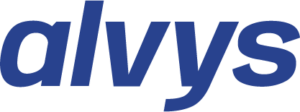In the fast-paced world of logistics, an efficient transportation management system (TMS) is the key to unlocking operational excellence. And when it comes to trucking, choosing the best TMS for carriers can be the difference between profitability and stagnation.
This article will dive into the carrier-specific features you should look for when selecting carrier TMS software, and highlight leading solutions on the market.
Quicklook: Best TMS software for carriers
- Best for automated shipment updates: Rose Rocket
- Best for real-time cost projections: Truckbase
- Best for LTL carriers: Trimble
- Best for dynamic route optimization: Load Logix
- Best for customization: Alvys
- Best for small carriers: MyCarrier TMS
Why a carrier-specific TMS matters
Generally speaking, the function of a TMS is to help multiple stakeholders in the supply chain (shippers, brokers, and carriers) manage all aspects of transportation, including routing, scheduling, carrier selection, and rate management across multiple carriers.
A carrier TMS, on the other hand, is specifically designed for trucking companies to manage their own fleet operations. Its features are focused around driver management, asset utilization, maintenance scheduling, and specific compliance requirements for their own trucks and drivers.
A top trucking TMS for carriers should offer the following:
Tailored load optimization
For carriers, backend load optimization is a non-negotiable feature. What good is a TMS if it can’t efficiently manage the complex details of trucking logistics? The best TMS solutions for carriers offer robust algorithms that take into account load size, vehicle type, driver hours, and even real-time traffic updates to ensure the most cost-effective and timely delivery routes.
Streamlined dispatching
TMS software for carriers should make dispatching a breeze. Maps and route optimizations should be built into the system, allowing dispatchers to assign loads with the click of a button.
Real-time tracking and communication capabilities are also essential to keep drivers informed and on schedule.
Billing and invoicing made easy
For many carriers, billing can be one of the most challenging processes. An ideal TMS not only provides accurate billing based on delivery metrics but also automates the process, reducing the time needed to process invoices and minimizing errors — a critical component of maintaining strong customer relationships.
Integrations with core systems
A TMS is most valuable when it can work in harmony with other systems. Integration with fleet management systems, load boards, and electronic logging devices (ELDs) ensures a holistic view of operations, leading to better decision-making and more opportunity for growth.
6 top carrier TMS software providers
With the multitude of TMS providers in the market, it’s essential to highlight the top contenders that have earned the trust and business of carriers across the industry.
Rose Rocket
As carriers scale their operations, the need for synchronization and integrated workflows becomes increasingly critical. Rose Rocket stands out with its intuitive and robust platform that seamlessly coordinates all aspects of carriers’ operations. With features like automated carrier onboarding and driver settlements, Rose Rocket empowers carriers to handle increased volume without sacrificing quality.
This means fewer manual touchpoints and faster decision-making, a crucial edge in an industry where time is literally money.
Best for: Automated shipment updates
Features:
- Historical lane data algorithms
- Dwell time reporting
- BI tools for evaluating profitable regions/customers
- Uses AI and machine learning algorithms to analyze trucking market data
- Ingests and evaluates historical carrier rate data
- Assesses trucking freight rates, volumes, equipment lanes, driver networks
- Full trucking and logistics platform suite
Benefits:
- Increases revenue per mile through better truck lane planning
- Reduces empty miles and backhaul costs
- Real-time tracking and margin insights
- Improves lane utilization and carrier network optimization
Disadvantages:
- Requires training for full value realization
- Requires extensive fleet truck service data to ensure algorithms are trained well
Pricing: Try it for free here
Truckbase
For carriers seeking a TMS that focuses on cost management, Truckbase is a formidable choice. This software is tailor-made to reduce operational waste and boost the bottom line.
Its advanced analytics provide real-time cost projections, helping carriers to make informed decisions that reflect their financial health. And by projecting costs accurately, carriers can bid competitively and secure profitable contracts.
Best for: Real-time cost projections
Features:
- Mobile app for driver schedules and document uploads
- Customized solutions
- AI-powered load creation
Benefits:
- Suitable for small fleets and can scale with your growing operations
- Dedicated account manager for onboarding and support
Disadvantages: No transparent pricing
Pricing: Contact Truckbase for details
Trimble
Trimble offers three TMS solutions tailored to various operational needs. Its TruckMate TMS is optimal for less-than-truckload (LTL) carriers, with features that streamline processes, boost operational efficiency, and reduce manual errors. The system’s scalability allows carriers to adapt as their business grows, while its integration capabilities ensure seamless communication across various platforms. TruckMate also offers real-time visibility into shipments and resources, enabling informed decision-making and improved customer satisfaction.
Trimble’s TMW.Suite TMS, on the other hand, is specifically designed to handle the operational requirements of full-truckload (FTL) carriers. And rounding out their TMS line-up is the Innovative TMS, which is most suitable for freight carriers managing fleets of 19 or more trucks.
Best for: LTL carrier operations
Features:
- Integrated accounting system
- Dispatch
- Fuel price tracking
- System alerts
- Real-time visibility
- Document management
Benefits:
- Reduced manual data entry
- Enhanced route planning and load assignments
- Smoother billing and administration
- IFTA fuel tax data
- Driver vehicle inspection reports (DVIR)
- Engine status reports
Disadvantages:
- Requires time and effort to take full advantage of capabilities
- Pricing isn’t available on Trimble’s site
Pricing: Contact Trimble directly for a customized quote
Load Logix

Detail-oriented carriers will appreciate Load Logix’s emphasis on the nitty-gritty of routing and dispatching. A software designed to optimize routes and reduce deadhead miles, Load Logix ensures that carriers make the most of every mile.
Load Logix’s TMS offers dynamic route optimization, continually adjusting to traffic and weather conditions.
Carriers are not just handed optimal routes; they’re given tools to recalibrate in real time, ensuring that shipments remain on track, even in the face of unexpected obstacles.
Best for: Dynamic route optimization
Features:
- Manage different companies and locations for billing and accounting
- Free unlimited users at any package level
- Real-time GPS
Benefits:
- High level of customization
- Monthly updates to software are performed to reduce bugs. Less chance of the software crashing at inopportune times
- Improved efficiency
Disadvantages: Integrations with other software are not available in the standard package
Pricing: As low as $29 per month
Alvys

In a field as varied as trucking, one-size-fits-all solutions seldom fit the bill. Alvys prides itself on offering fully customizable TMS solutions to meet the specific needs of different carriers, be they a small family operation or a large fleet.
With Alvys, carriers can adapt their TMS to their unique workflows, enhancing productivity and reducing the learning curve for their team.
Alvys empowers carriers with a drag-and-drop workflow builder, allowing them to craft their TMS experience. This level of flexibility ensures that the software grows with the company, supporting its innovations and evolutions in operation.
Best for: Customization
Features:
- Route optimization
- Real-time tracking
- Automated dispatching
- Telematics integration
- Driver mobile app
Benefits:
- Operational efficiency
- Customer service
- Driver productivity
- Fleet management
- Scalability
Disadvantages:
- Implementation costs
- Data quality
- Integration challenges
Pricing: Customized quotes
MyCarrier TMS

MyCarrier TMS stands out for its simplicity and direct integrations, making it an excellent choice for small to medium-sized carriers looking to enhance operational efficiency without a steep learning curve. Co-owned by Michael Bookout and Chris Scheid, My Carrier TMS offers a user-friendly interface designed to streamline the shipping process, from dispatch to delivery, ensuring every step is managed seamlessly.
MyCarrier TMS provides real-time visibility and tracking capabilities, allowing carriers to monitor shipments with precision. This transparency empowers companies to make data-driven decisions, ensuring that shipments are on time and within budget.
Best for: Small carriers
Features:
- Real-time shipment tracking and visibility
- Customizable dashboards and workflows
- Direct integration with carriers for accurate tracking
Benefits:
- Easy-to-use platform with minimal training required
- Cost-effective pricing tailored for smaller carriers
- Enhanced collaboration tools for shippers, carriers, and brokers
Disadvantages: Limited advanced features for larger enterprises
Pricing: Starting at $60 per month
Choosing your carrier TMS
Having the right TMS software for carriers is a critical success factor. Here are the steps to evaluate and choose the best fit for your business:
Step 1: Assess your needs
Begin by determining what your business-specific requirements are. Identify the pain points in your current operation and set goals for what you want to achieve with a new TMS carrier software platform.
Step 2: Compare features
List out the must-have features for your TMS and compare how each provider stacks up. Consider the scalability of the solution; it should be able to grow alongside your business without significant disruption or cost.
Step 3: Check for compliance
Regulatory compliance is a must in the trucking industry. Ensure that the TMS can handle IFTA reporting, fuel tax calculations, and other legal requirements, providing peace of mind as well as efficiency.
Step 4: Get feedback
Don’t just rely on marketing materials. Reach out to current users and seek their honest feedback on the TMS. Their experiences can be invaluable in understanding how the software will perform in real-world scenarios.
Step 5: Consider support and training
A TMS is only as good as the support that comes with it. Investigate the level of customer support the provider offers and what training options are available to ensure a smooth transition and efficient use of the software.
Step 6: Cost evaluation
Understand the pricing structure and how it aligns with your budget. Look for hidden fees, and ensure the provider is transparent about what will be included in the quoted price.
Choose the best TMS for your fleet management needs
Carrier TMS software is not just a tool to manage logistics; it’s an essential part of a carrier’s toolkit to streamline operations, reduce costs, and provide better service.
Whether you’re a small carrier looking to scale up or a large enterprise aiming for greater efficiency, the right transportation management solutions can make all the difference.
FAQ
A transportation management system (TMS) in trucking is a software platform that helps carriers plan, optimize, and execute the movement of freight. It automates processes such as route planning, dispatching, tracking, and billing, enabling carriers to improve operational efficiency and customer service.
The adoption of TMS software in the trucking industry has been steadily increasing, especially among larger carriers looking for advanced cloud-based solutions, including offerings from Rose Rocket, Truckbase, and Trimble. However, exact adoption figures are difficult to pinpoint.
The cost of a TMS system can vary widely depending on the provider’s pricing model (perpetual license or subscription) and individual customer needs. Larger carriers can expect to pay anywhere from tens of thousands to hundreds of thousands of dollars for a comprehensive TMS solution, while smaller carriers may find more affordable options for a few thousand dollars annually.
A TMS isn’t an absolute necessity for brokers, but having one significantly increases efficiency and profitability by automating back-office manual tasks and improving operational visibility. It becomes increasingly essential as a brokerage grows and manages more shipments.




